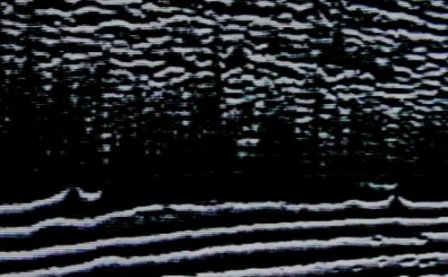Entanglements in the Orthopedic Sensorium, the latest album by Berlin-based sound-artist Andrew Pekler, consists of 38 minutes of sound, and the 4 song titles consist of 91 words, thus making it possible for the slow reader to complete the sound experience before reading through the corresponding words. The album is the result of Pekler adventuring through unused sound-fragments stored in the memory of his digital-archive and reconstructing these moments into a totality that embraces the notion of radical particularity. Even though the particular is emphasized, the movement through each instance is not radically disruptive — as if we were experiencing history through a Hegelian lens of upheaval and conflict — but rather is dream-like and seamless. The flowing essence of the fragments stands opposed to the accepted notion of pain as being the feeling par excellence that corresponds to the process of moving between differences, transitioning from one world of sound to the next.
While listening to this album over the last several weeks, my mind has often returned to a moment during the final fight scene in Robert Clouse’s 1973 Bruce Lee film, Enter The Dragon. The scene I have in mind is when Lee is pursuing Han, the renegade Shaolin monk who governs the mysterious island hosting the martial arts tournament, through the room of mirrors. The constantly shifting images create a visual experience that complicates the objective each has, namely to kill the other. Eventually, of course, Lee locates Han and delivers the death blow. Pekler’s labyrinthine composition of sound-fragments does something similar, but markedly different. Pekler asks us to imagine the possibility that, due to the forever-shifting visual experience, Lee never locates Han. Instead, they are perpetually held within this dislocating moment, eventually abandoning their shared objective and embracing the playfulness of the mirror-room: forever happily dancing back and forth among the deceitful images, smiling, and accepting the necessary elusiveness of their initial goal.
Pekler invites us to accept what both Han and Lee accept in this alternative scene: a radical notion of perspectival play. The traces of sound Pekler constructs are groundless and fleeting, rendering impossible the firm grasp that those in search of capital-T Truth desperately crave. The blips, glitches, bubbles, whirrs, droplets, and explosions — which are oftentimes accompanied by fantastic pop and carnivalesque phrases — create a mood (and infinite worlds) of possibility, play, and rootlessness. Rather than locate the metaphysical kernel that each sound-fragment conceals — which would allow us to categorize it and transform the mystery into knowledge — we are forced to drift between worlds of sound that are never fully disclosed. Through Pekler’s sound-experiment, perhaps, we can articulate a healthy conception of cosmopolitanism. Han and Lee no longer desire to kill each other, but put aside their differences as a consequence of accepting the facticity of perpetual difference. Each moment and transition of sound — as well as the multitude of identities, cultures, systems of value, social structures, etc. — is not understood as an object to be grasped by the firm hand of knowledge, but as a possibility for infinite play and discovery. By capturing these ideas with sound, Pekler has constructed a very important, bold, and challenging album that deserves close attention.
More about: Andrew Pekler




